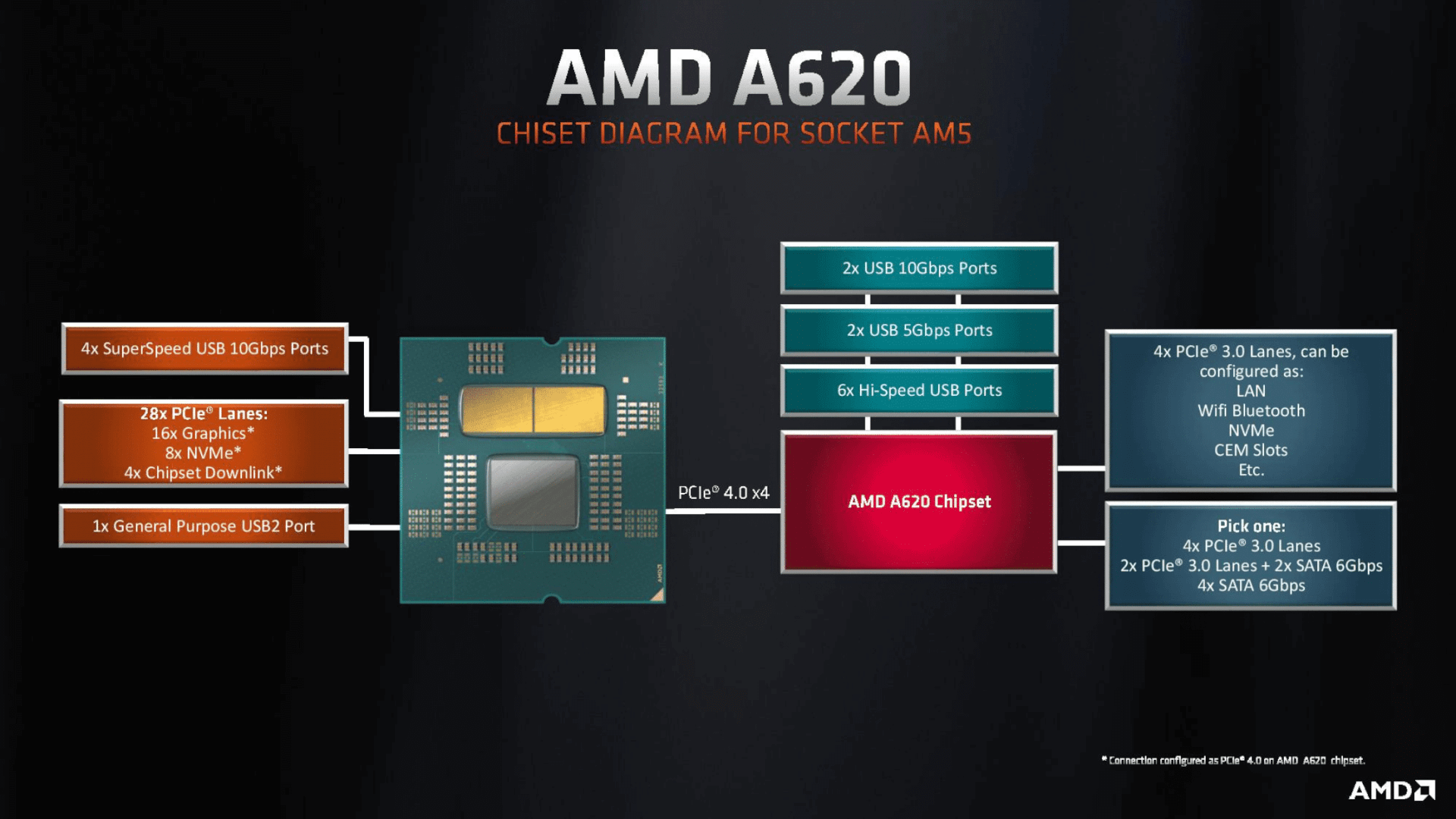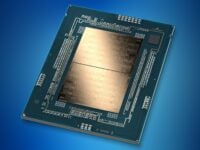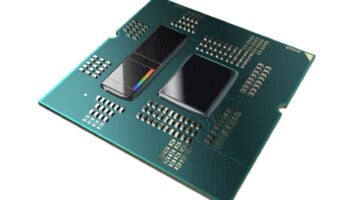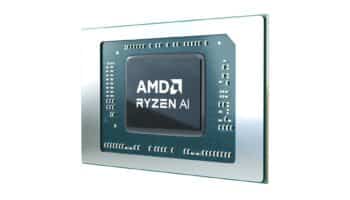AMD launched its entry-level A620 motherboards last week with a starting price of $85, promising affordable gaming builds on the AM5 platform. The main caveat of the A620 chipset is that the official spec recommends a VRM capable of running 65W CPUs. AIBs are free to pair the chipset with higher-end power delivery solutions but that is bound to increase the BOM, killing the very point of the A620 lineup.
It’s worth remembering that the A620 is based on the PROM21 chipset, the same as the B650 chipset, so we’re technically looking at the same dies. A Korean YouTuber has shared the benchmarks of the Ryzen 7 7800X3D on an A620 board, highlighting minimal losses versus the X670 platform despite its 120W TDP.
In most games, the Ryzen 7 7800X3D performs nearly the same on the A620 board as its higher-end X670 sibling. There is only one scenario where the delta exceeds 3%. We see the octa-core chip net an average of 224 FPS on the Gigabyte A620M Gaming X vs. 233 FPS on an X670 board.
Cinebench R23 is a heavily threaded rendering workload that fully stresses the VRM and the associated components. Yet, the A620 is, once again, just 4% slower on the A620 compared to the pricey X670 chipset. The Ryzen 7 7800X3D draws 81W on the former versus 96W on the latter. The CPU usage is also generally lower on the A620, showing a slight bottleneck imposed by the VRM. As expected, the clocks are slightly lower in heavily threaded tasks.
Via: Harukaze5719






